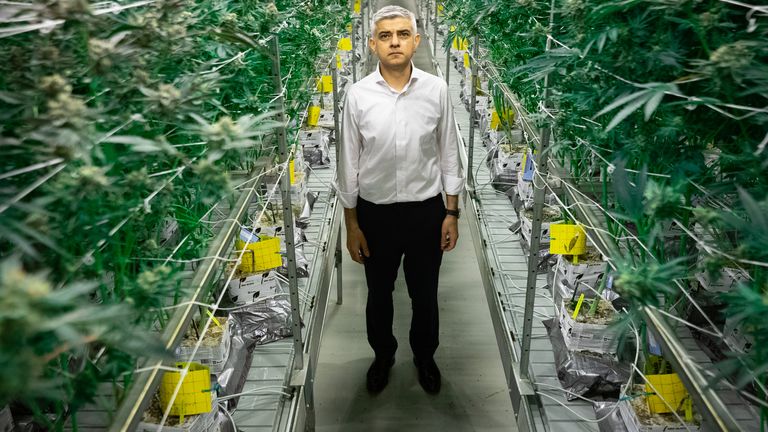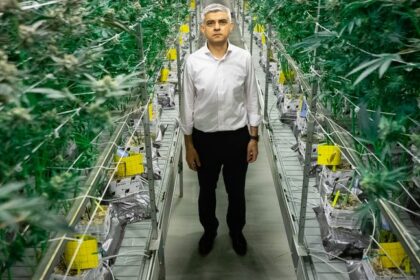London Moves Toward Cannabis Decriminalisation in 2025
In a major development that could reshape the UK’s approach to drug policy, London is moving closer to decriminalising the personal use of cannabis. Backed by Mayor Sadiq Khan, the proposal follows a detailed report by the London Drugs Commission (LDC) — a panel of health experts, police leaders, and policy analysts tasked with assessing the capital’s approach to illegal drugs.
This marks the most significant discussion around cannabis reform in London in over a decade.
Why Is Cannabis Decriminalisation Being Proposed?
The LDC’s report, released in early 2025, recommends removing criminal penalties for the possession of small amounts of natural cannabis for personal use. This would not legalise cannabis in London but shift the focus from criminal justice to public health.
Key reasons cited in the report include:
- Disproportionate enforcement: Data shows that Black Londoners are more than three times more likely to be stopped and searched for cannabis than white residents.
- Wasted police resources: Thousands of hours are spent pursuing minor possession cases instead of tackling serious crime.
- Public health strategy: Experts argue cannabis use should be treated similarly to alcohol or tobacco — through education, regulation, and harm reduction, not incarceration.
Mayor Khan stated:
“It’s time for a grown-up, evidence-based conversation about how we reduce drug harm and make our communities safer.”
What Would Change If Cannabis Was Decriminalised in London?
If adopted, the policy would mean that individuals caught with small amounts of cannabis for personal use would not face arrest or prosecution. Instead, they could be referred to counselling, support services, or educational programs — similar to successful models in Portugal and parts of Canada before full legalisation.
This proposal focuses only on natural cannabis, and would not apply to synthetic cannabinoids, which remain illegal and more dangerous.
Opposition from the UK Government
While the proposal has support from local London leadership, the UK Home Office — which controls national drug laws — has quickly pushed back.
A Home Office spokesperson reiterated:
“There are currently no plans to decriminalise cannabis. It remains a Class B drug.”
In short: even if London backs the idea, national legislation must change for decriminalisation to become official.
Public Opinion and What’s Next
Polls show increasing public support for cannabis reform. An Evening Standard survey found that over 60% of Londoners support decriminalisation, especially among young people and public health advocates.
Even without immediate legal change, the LDC report and Khan’s endorsement have reignited national conversations about UK drug reform. With general elections looming and drug policy increasingly debated across Europe, this London initiative could become a tipping point.
Final Thoughts: Is This the Start of a Cannabis Policy Revolution?
While London doesn’t have the authority to fully legalise cannabis, this is a significant cultural and political shift. The capital is sending a clear message: criminalising personal cannabis use may be doing more harm than good.
Whether Westminster listens remains to be seen. But the momentum for reform is building — and London may just be leading the way.






